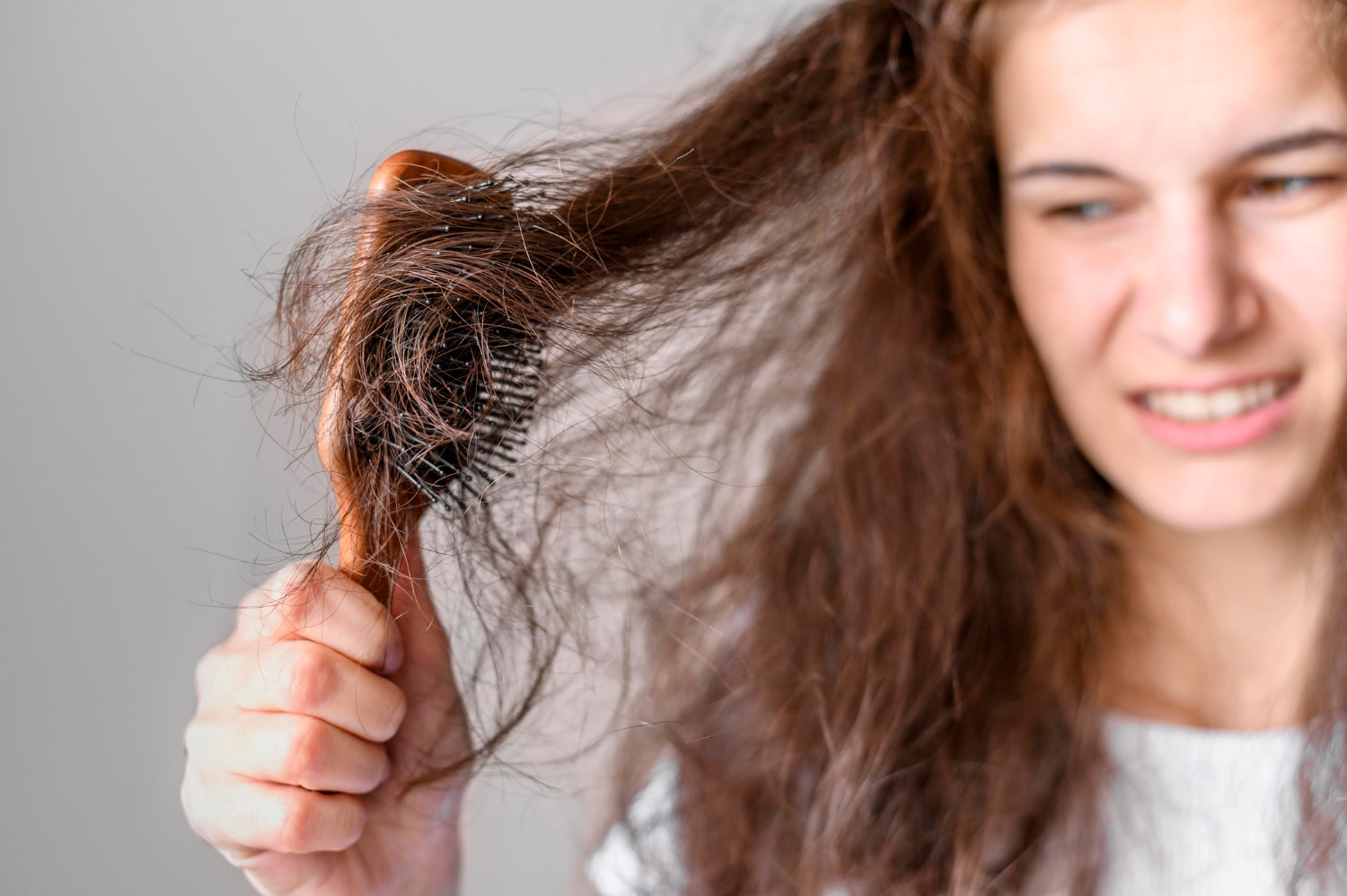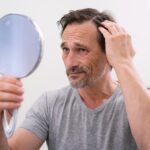Welcome to our comprehensive guide on hair loss causes. Hair loss can be a distressing experience, but it is essential to understand the root cause of the issue to find the best treatment option. In this article, we will take a deep dive into the 18 most common causes of hair loss, their symptoms, and possible treatments.
Causes of Hair Loss
Hair loss is a prevalent condition that impacts numerous individuals worldwide. Although it is often associated with ageing, hair loss can occur at any age and can be caused by a variety of factors. Some of the most common causes of hair loss include:
Genetics
The most frequent cause of hair loss in both men and women is genetics. Androgenetic alopecia, also known as male or female pattern baldness, is a hereditary condition that can result in gradual hair thinning or baldness over time. While there is no cure for androgenetic alopecia, various treatments, including medications like minoxidil and finasteride, can help slow down hair loss and promote new hair growth.
Hormonal Changes
Hormonal changes can also cause hair loss, particularly in women. Fluctuations in hormone levels due to pregnancy, childbirth, menopause, or thyroid disorders can disrupt the natural hair growth cycle, resulting in hair loss. Treatment options vary based on the underlying cause, but hormone replacement therapy or medications like spironolactone may be effective in restoring hair growth.
Medications
Certain medications can also cause hair loss as a side effect. These medications include chemotherapy drugs, antidepressants, blood thinners, and high blood pressure medications. If you are experiencing hair loss while taking any medication, consult with your healthcare provider to determine if switching to a different medication or adjusting your dosage may help.
Stress
Stress can disrupt the natural cycle of hair growth, leading to a temporary condition called telogen effluvium, which can result in hair loss. Finding healthy ways to manage stress, such as through exercise, mindfulness, or therapy, can help prevent and reverse hair loss due to stress.
Nutritional Deficiencies
A lack of essential nutrients, such as iron, zinc, and biotin, can lead to hair loss. Eating a balanced diet that includes plenty of protein, fruits, and vegetables can help prevent hair loss due to nutritional deficiencies. Additionally, taking supplements may be necessary to address specific nutrient deficiencies.
Autoimmune Disorders
Autoimmune disorders, such as alopecia areata, cause the immune system to attack hair follicles, resulting in hair loss. Treatment options include medications like corticosteroids or immunosuppressants, as well as topical treatments like minoxidil.
Infections
Fungal or bacterial infections of the scalp can lead to hair loss. Treatment options typically involve the use of antifungal or antibiotic medications to clear up the infection and promote new hair growth.
Trauma
Physical trauma to the scalp, such as from a burn or injury, can cause hair loss. Treatment options vary based on the extent of the trauma, but hair transplants or scalp reduction surgeries may be necessary to restore hair growth.
Hairstyling Practices
Hairstyling practices that put excessive strain on the hair, such as tight braids or weaves, can cause hair loss. Changing hairstyling practices or avoiding styles that put tension on the hair can help prevent and reverse hair loss due to hairstyling practices.
Age
As we age, the natural hair growth cycle slows down, resulting in thinner hair and hair loss. While age-related hair loss is typically permanent, various treatments can help slow down the process and promote healthy hair growth.
Environmental Factors
Exposure to environmental factors, such as pollution, UV radiation, or harsh chemicals, can damage hair and lead to hair loss. Using protective measures, such as wearing hats or using gentle hair care products, can help prevent hair loss due to environmental factors.
Weight Loss
Rapid weight loss can cause hair loss due to the stress placed on the body. Eating a balanced diet and avoiding crash diets can help prevent hair loss due to weight loss.
Scalp Conditions
Various scalp conditions, such as psoriasis or seborrheic dermatitis, can lead to hair loss. Treatment options typically involve the use of medicated shampoos or topical treatments to address the underlying scalp condition and promote healthy hair growth.
Hormonal Imbalances
Hormonal imbalances, such as those caused by polycystic ovary syndrome (PCOS), can cause hair loss. Treatment options include hormone replacement therapy, medications like spironolactone, or lifestyle changes like weight loss and exercise to restore hormone balance.
Radiation Therapy
Radiation therapy for cancer treatment can cause hair loss, but this type of hair loss is typically temporary. Hair growth typically resumes after radiation therapy has ended.
Chemical Exposure
Exposure to chemicals, such as those used in hair dyes or relaxers, can cause hair damage and hair loss. Avoiding harsh chemicals and using gentle hair care products can help prevent hair loss due to chemical exposure.
Chronic Illness
Chronic illnesses, such as lupus or diabetes, can cause hair loss as a symptom. Treating the underlying chronic illness can help prevent and reverse hair loss.
Poor Hair Care Habits
Poor hair care habits, such as excessive heat styling or infrequent washing, can lead to hair damage and hair loss. Using gentle hair care products and avoiding excessive heat styling can help prevent hair loss due to poor hair care habits.
In conclusion, understanding the underlying cause of hair loss is essential to finding the best treatment option. While hair loss can be distressing, various treatments are available to help slow down hair loss and promote healthy hair growth. By following healthy hair care practices and addressing underlying medical conditions, you can help prevent and reverse hair loss. We hope that this comprehensive guide has been helpful in understanding the various causes of hair loss and their possible treatments.



